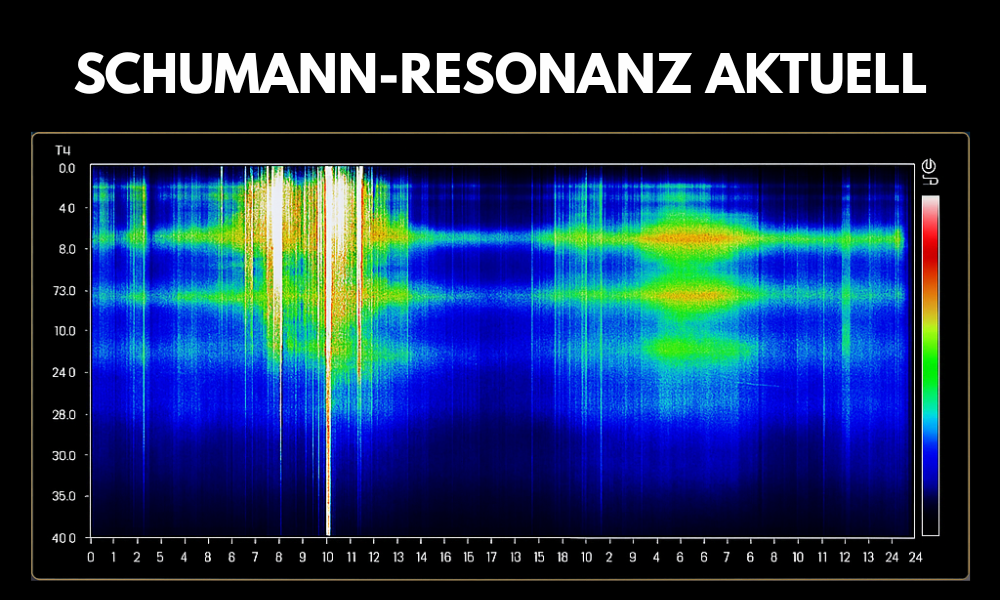Burnout burned out and energy-free?
Burnout burned out and energy-free?
Today's article is dedicated to a topic that is unfortunately far too often overlooked and underestimated: burnout syndrome.
Burnout isn't just a fad, but a serious and increasingly recognized medical condition. But what exactly does burnout mean? Simply put, burnout is a state of physical, emotional, and mental exhaustion that occurs due to prolonged, excessive stress. It's like the feeling of falling to the ground after running a marathon, only in this case, you don't even know when or where the race began or what the finish looks like.
But how do you know if you're suffering from burnout? There are several symptoms that could indicate it, including constant fatigue, loss of motivation, reduced performance, and even physical ailments like headaches or digestive problems. It's as if your body and mind are telling you, "Stop, it's time for a break."
However, it should be noted at this point that burnout is more of a concise umbrella term for a range of different symptoms of exhaustion. Therefore, the scientific analysis of burnout syndrome will be briefly discussed here before delving deeper into the topic.
The scientific definition of burnout syndrome
Perhaps you're familiar with the ICD catalog. If not, no problem!
ICD stands for "International Statistical Classification of Diseases and Related Health Problems." This may sound incredibly complicated at first, but it's actually quite simple to explain.
The World Health Organization (WHO) decides which conditions are considered diseases, how they are divided into different areas and which symptoms are considered characteristic of the diseases.
Burnout is described in the ICD-10, the tenth version of the catalog, as burnout and is not classified as an illness, but as a “problem related to difficulties in coping with life.”
The preliminary draft of the ICD-11 expands the definition of burnout syndrome, but explicitly describes it as a result of workplace stress. This completely ignores all other dimensions of stress and various other causes of burnout. For this reason, the new definition has drawn strong criticism.
Since neither the ICD-10 nor the provisional ICD-11 provide a suitable definition that does justice to burnout syndrome, this blog article will not refer to the ICD-10 or 11 classification, but rather to the societal perspective.
There's no clear definition underlying this blog post. Therefore, we'll look at the symptoms described by those affected, their causes, and treatment options, rather than relying on the controversial WHO definition.
Important facts about burnout
- Burnout is a state of physical, emotional and mental exhaustion.
- The causes are long-term stress and high demands without sufficient recovery.
- Burnout is not classified as a disease in the ICD-10, but as a “problem related to difficulties in coping with life.”
- The preliminary draft of the ICD-11 describes burnout as a result of stress at work.
How does burnout occur?
Burnout doesn't develop overnight. It's the result of prolonged stress and can affect anyone. That's why it's important to understand how burnout develops.Understanding the development process can help you recognize warning signs and take preventative measures.
Imagine your mind and body are like a battery. Every activity you perform consumes a bit of its energy. Normally, this isn't a problem, because rest and relaxation recharge the battery. But what if the battery drains faster than it can recharge? If energy consumption remains consistently high and recovery phases are insufficient, the battery will continue to deplete. And if this continues for an extended period, it can lead to burnout.
To better understand burnout, we can imagine stress as a triangle. The three corners of this triangle are the demands placed on us, the control we have over those demands, and the support we receive in meeting those demands. When demands are high, control is low, and support is lacking, stress levels rise.
Burnout has become an increasingly important and widespread issue, partly due to increasing social acceptance, but also due to societal developments. Digitalization has made everything in our lives faster and more efficient. We process far more information throughout the day than before, so it's not uncommon for inner peace and relaxation to be lost in this sea of impressions.
Long working hours, high expectations, lack of recognition, and limited control over the work situation are other factors that can contribute to burnout. Personal challenges such as financial worries, family problems, or the feeling of always having to be reachable and available can also contribute to the development of burnout.
Prevention: What to do if you notice signs of burnout?
The first and most important thing is to recognize and accept the situation. It can be tempting to ignore the signs and just keep going. But remember that burnout won't simply go away if you ignore it. It's like a flashing warning light in a car—it signals that something is wrong and that maintenance is needed. Ignoring the light can lead to more serious problems.
Once you've recognized the signs of burnout, the next step is to seek support. This can take many forms, from talking to a trusted friend or family member to seeking professional support from a therapist or doctor. It's important to talk about your feelings and not isolate yourself.
It can also be helpful to reassess your lifestyle. Are there things in your life that cause you particularly high levels of stress? Are there ways to reduce or better manage these factors? Depending on where you see things in your life that are stressing you out, it may be advisable to reconsider how you deal with them or whether it's worth eliminating them completely.
Pay attention to your body and your needs. You may have heard the expression "your body is a temple." In this context, this means you should be aware of your basic needs and take care of them. Regular exercise, a healthy diet, and adequate sleep are fundamental building blocks for keeping your body and mind healthy.
The effects
We've already talked about how burnout develops and how to recognize its signs. Now let's turn our attention to the effects of burnout. It's important to understand these effects in order to recognize the urgency of protecting and healing yourself.
If burnout isn't treated properly, it can have serious repercussions for your physical and mental health. Physically, burnout can take many forms. It often manifests as sleep disturbances, digestive problems, or headaches and a weakened immune system.
On an emotional level, the effects are sometimes even deeper. Those affected often report feelings of despair, anxiety, and depression. They feel alienated and dissatisfied, both at work and in their personal lives. Furthermore, many people with burnout lose interest in things they once enjoyed. It's as if the color has been wiped from their lives, and everything appears in shades of gray.
Cognitive abilities can also be impaired by burnout. You may notice difficulty concentrating or a feeling of numbness and mental blurriness.
Observations can also be made on a social level. Interpersonal relationships are often strained, as people suffering from burnout tend to withdraw and isolate themselves. This affects both work and personal relationships and can place additional strain on those affected.
Some of these effects can be attributed to a general increase in cortisol levels in the body, as cortisol is a stress hormone and is released in increased amounts in the event of burnout.
Signs of burnout
- Constant tiredness and exhaustion
- Loss of motivation and performance
- Physical complaints such as headaches and digestive problems
- Emotional symptoms such as anxiety, despair and depression
- Social isolation and strain on interpersonal relationships
How do you treat burnout?
Now that we've dealt extensively with the dark side of burnout, let's move on to a somewhat more hopeful topic: treatment.
Burnout is like getting lost on your path through life and finding yourself at a dead end. But just because things seem to be going nowhere doesn't mean it's not worth turning around and looking for a new path.
This can happen alone, but also with the help of trusted people or professional support. First and foremost, it's important to emphasize that it's perfectly fine to seek professional help. Burnout is a recognized illness, and just as you would see a doctor for physical problems, you should also do so for mental health issues.
An experienced therapist can help you understand the causes of your burnout and develop new strategies for coping with stress. Cognitive behavioral therapy, a form of psychotherapy, has proven particularly effective in treating burnout. It can help you not only recognize unhealthy behavioral patterns and ways of thinking, but also actively change them.
It's also advisable to use relaxation techniques. At the first signs of burnout or excessive stress levels, you should incorporate meditation, breathing exercises, or yoga into your daily routine to free yourself from harmful stress as much as possible.
A healthy diet and regular physical exercise can also make a big difference and help you bring more balance into your life.Balance is a very crucial word in general, because by trying to create a healthy balance between work, relaxation, hobbies and social activities, you can not only counteract burnout but also reduce the overall likelihood of suffering from burnout.
Conclusion
Each and every one of us should regularly check in with ourselves and ask ourselves: "How am I actually doing? Am I happy and balanced, or could I do more for my well-being?" Because ultimately, each of us is responsible for our own health. Through mindfulness and self-care, we can help prevent burnout and promote our own well-being.
Burnout may be a challenge of our time, but it's not insurmountable. With the right support and resources, we can learn to manage stress, protect our health, and live a fulfilling, balanced life.
Sources:
- https://www.bfarm.de/DE/Kodiersysteme/Klassifikationen/ICD/ICD-11/uebersetzung/_node.html (Code: QD85)
- https://www.dimdi.de/static/de/klassifikationen/icd/icd-10-gm/kode-suche/htmlgm2023/block-z70-z76.htm#Z73 (Code: Z73)
- https://www.mediclin.de/ratgeber-gesundheit/psyche-koerper/burnout-ausgebrannt-und-erschoepft/
- https://zdfheute-stories-scroll.zdf.de/burnout-symptome-anzeichen-depression-was-tun-/index.html




